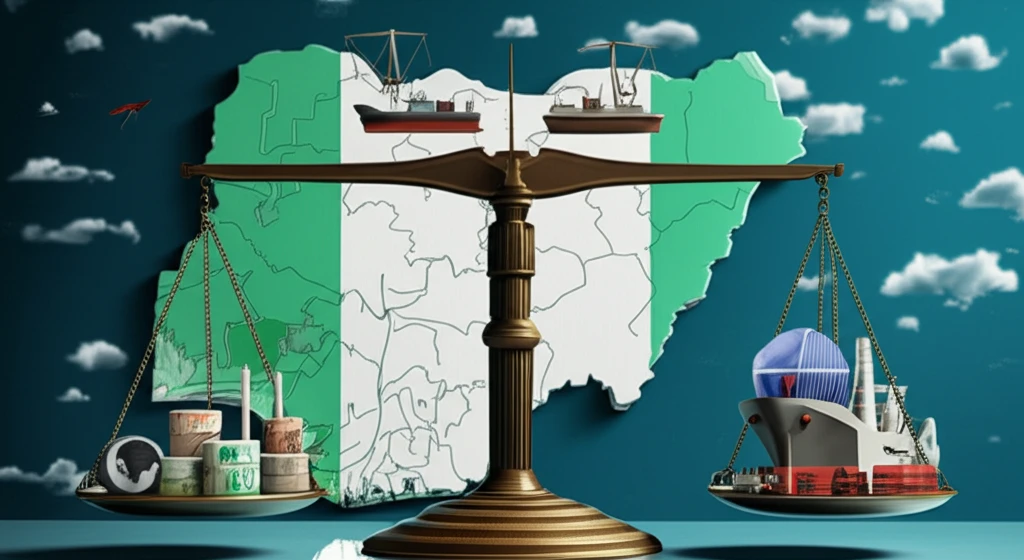
Decoding Nigeria's Economic Puzzle: Can Monetary Policy Balance the Equation?
"Exploring the complexities of balance of payment adjustments in Nigeria (1970-2010) using the monetary channel approach."
For decades, economists have debated the best way to manage a country's balance of payments – the record of all financial transactions between a country and the rest of the world. Historically, different schools of thought have emerged, each with its own focus and proposed solutions. The Classical approach emphasized the role of prices and interest rates, while the Keynesian approach focused on income changes. But in the mid-20th century, a new perspective arose: the monetary approach.
The monetary approach views balance of payments issues as fundamentally monetary phenomena, arguing that imbalances reflect discrepancies between the supply and demand for money. This perspective, championed by economists like Robert Mundell and Harry Johnson, suggests that managing the money supply is key to restoring equilibrium. But does this theory hold true in the real world, particularly in a complex economy like Nigeria?
This article delves into an empirical analysis of Nigeria's balance of payments between 1970 and 2010, using the monetary channel as a lens. By examining the relationships between key variables like exchange rates, domestic credit, inflation, and trade, we'll explore whether monetary policy has been an effective tool for adjusting economic imbalances in Nigeria.
Monetary Policy: Does it Steer Nigeria's Economic Ship?

The original research employed linear regression analysis, a statistical method to model the relationship between a dependent variable (in this case, the balance of payments) and several independent variables (like domestic credit, exchange rates, and inflation). The data spanned from 1970 to 2010, providing a historical view of Nigeria's economic performance.
- Domestic Credit: An increase in domestic credit could lead to a better balance of payments, possibly because it stimulates local production and reduces reliance on imports.
- Exchange Rates: A favorable exchange rate can make Nigerian exports more competitive, boosting the balance of payments.
- Balance of Trade: A surplus in the balance of trade (more exports than imports) naturally contributes positively to the balance of payments.
- Inflation: High inflation can erode the competitiveness of Nigerian goods, making imports more attractive and hurting the balance of payments.
- Gross Domestic Product (GDP): While seemingly counterintuitive, a higher GDP might increase demand for imports, thus negatively affecting the balance of payments.
Finding the Right Economic Recipe
The study suggests that the Central Bank of Nigeria (CBN) should focus on expenditure-reducing monetary policies, managing money supply and domestic credit to promote a favorable balance of trade. This, in turn, can help stabilize the overall balance of payments. However, it's crucial to remember that monetary policy is just one ingredient in a complex economic recipe. Prudent fiscal policy, trade regulations, and structural reforms all play a vital role in achieving sustainable economic stability.
